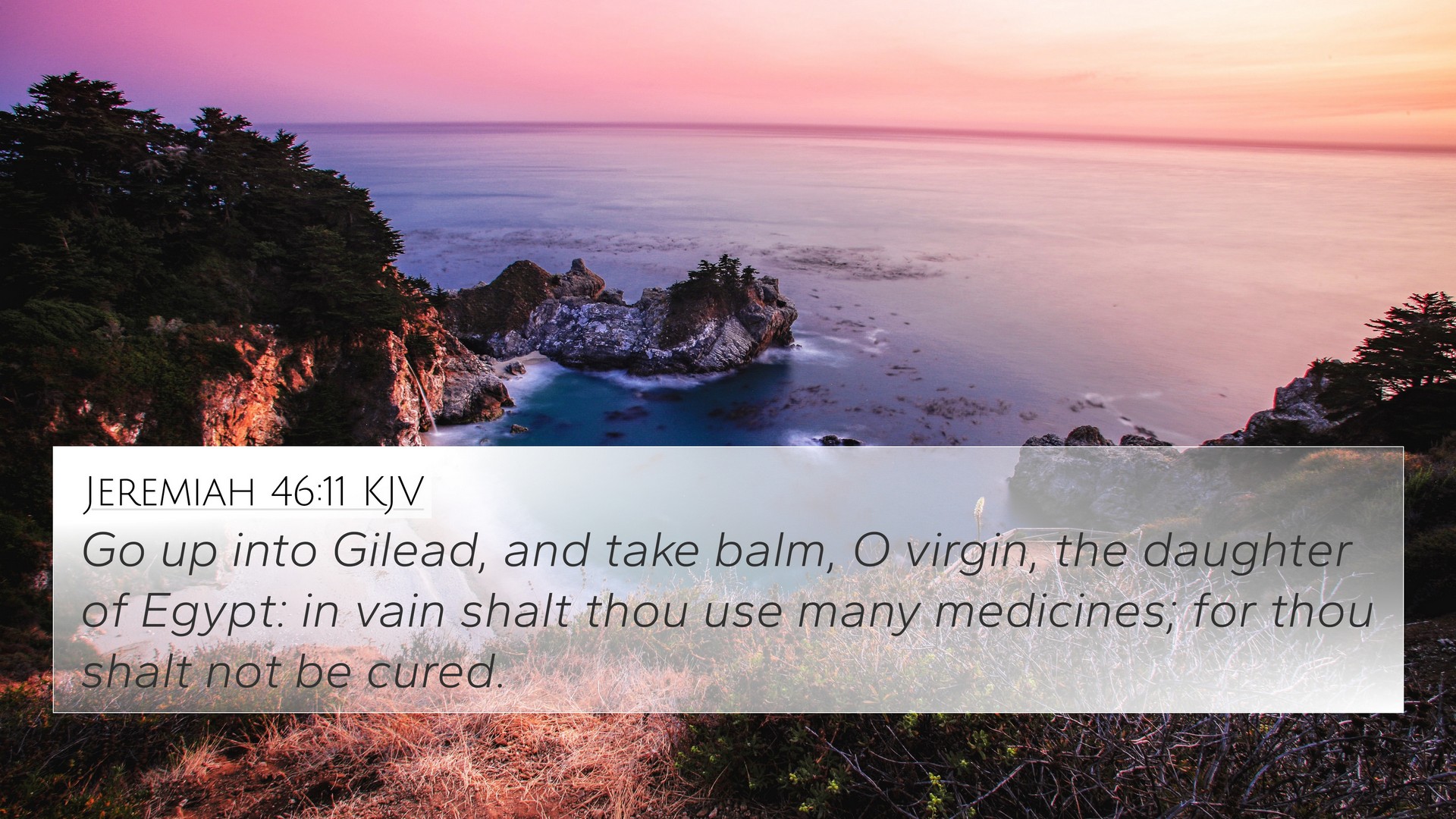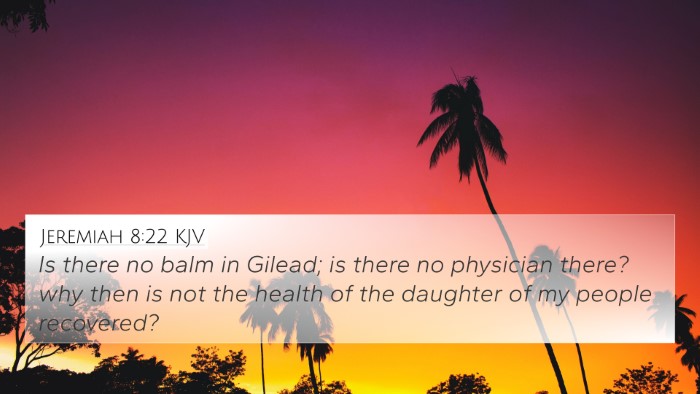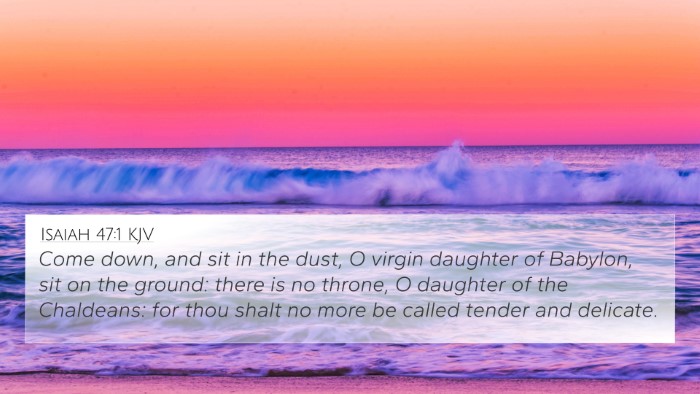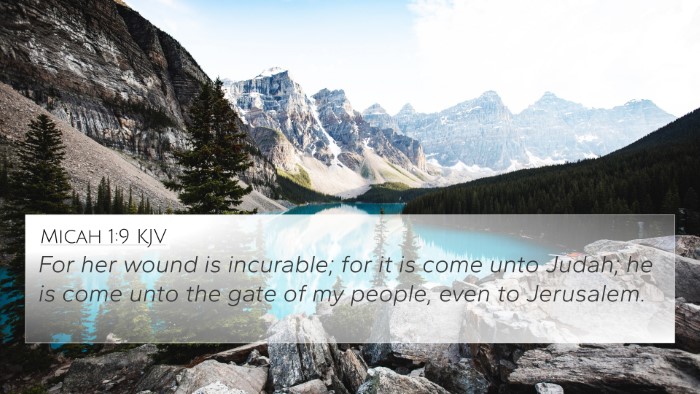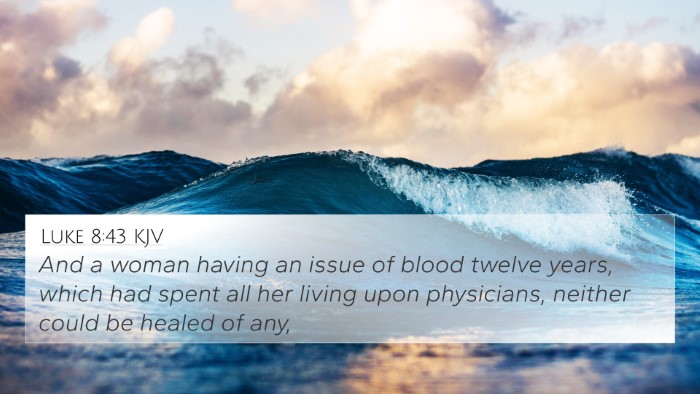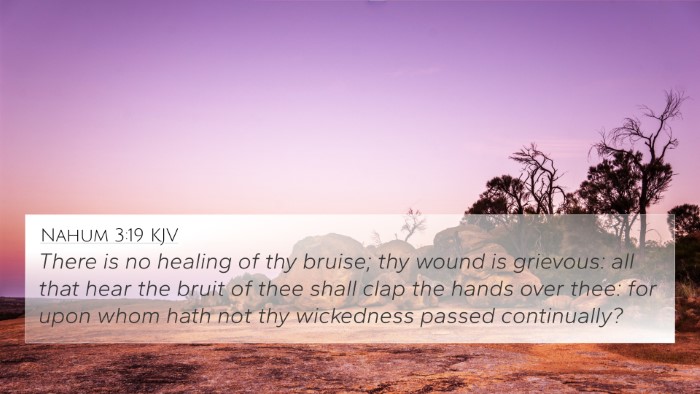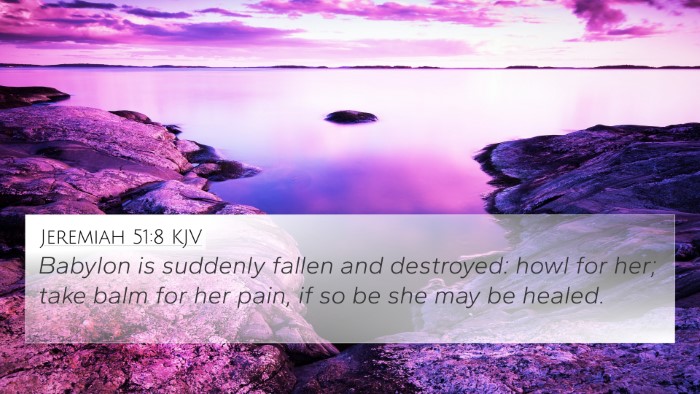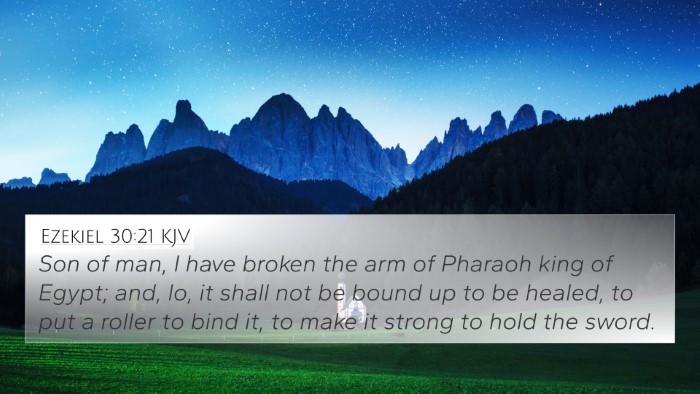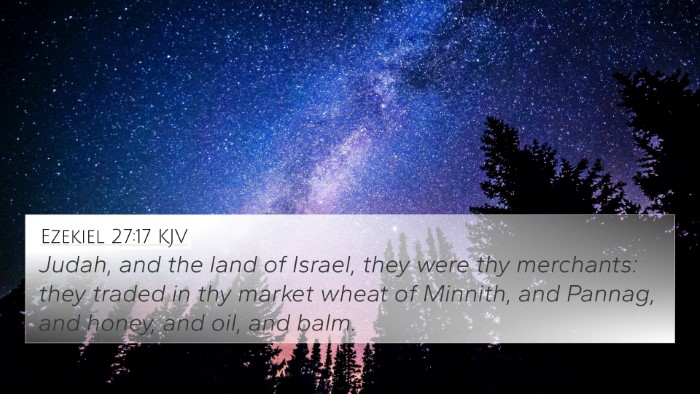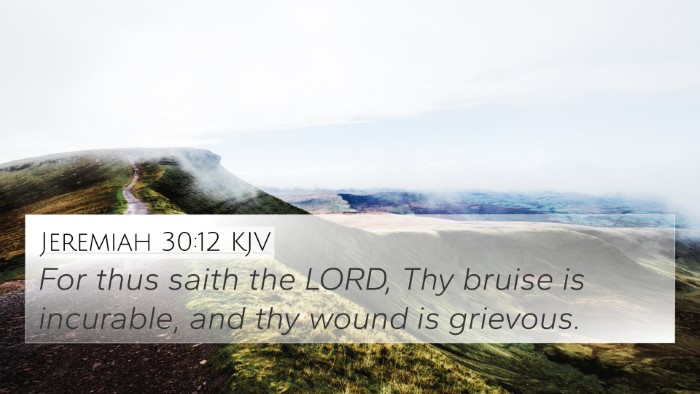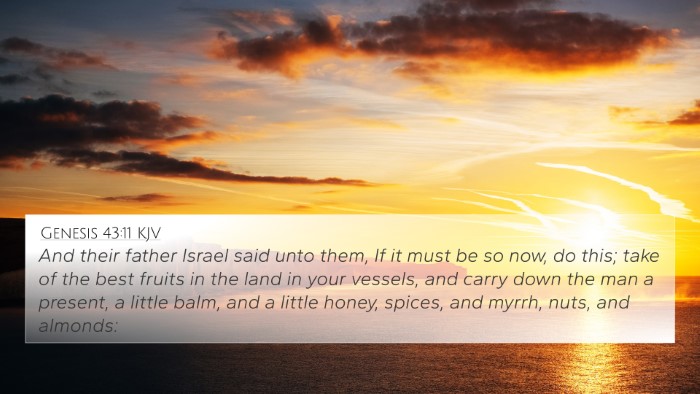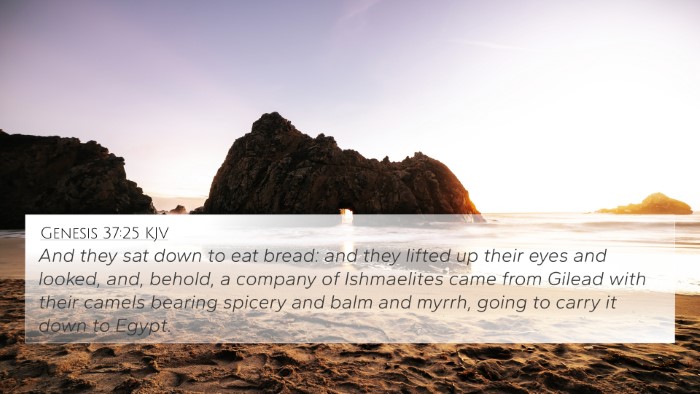Understanding Jeremiah 46:11
Jeremiah 46:11 states: "Go up to Gilead and take balm, O virgin, the daughter of Egypt: in vain shalt thou use many medicines; for thou shalt not be cured." This verse conveys God's powerful message concerning Egypt's impending judgment and the futility of its reliance on external aids for healing.
Verse Context and Summary
In the broader context, Jeremiah is prophesying against many nations, including Egypt, who had placed their trust in various strategies for security and healing rather than in God. This verse specifically highlights the desperation of Egypt and its ineffectiveness in seeking cures through worldly means.
Insights from Public Domain Commentaries
-
Matthew Henry's Commentary:
Henry emphasizes the metaphorical use of "balm" as representing worldly remedies. He highlights that the “virgin daughter of Egypt” is both a mark of its once-pure state and a representation of its current vulnerable condition. The idea of using "many medicines" yet finding no cure speaks to the futility of relying solely on human wisdom and resources without divine support.
-
Albert Barnes' Notes:
Barnes points out that “Gilead” was known for its healing balm, symbolizing the best worldly solutions available to Egypt. He indicates that the Lord's message serves as a stern reminder that without His intervention, even the most renowned and effective remedies would ultimately prove worthless.
-
Adam Clarke's Commentary:
Clarke elucidates the implications of Egypt's historic reliance on its own prowess rather than turning to God for salvation. He further interprets the use of "virgin" as a poetic device to reveal Egypt's vulnerable state post-judgment.
Inter-Biblical Connections
This verse has numerous connections to other scriptures, enriching our understanding of its message:
-
Isaiah 30:1-3: Highlights Israel's reliance on Egypt for help, warning that their confidence in human alliances will lead to disappointment.
-
Jeremiah 2:13: God describes Himself as the fountain of living water, while Israel has turned to broken cisterns that cannot hold water.
-
Exodus 15:26: God promises healing through obedience, contrasting it with the useless healing sought by Egypt in times of distress.
-
Psalm 147:3: Proclaims that God heals the broken-hearted and binds up their wounds, emphasizing divine healing that remains unmatched by earthly remedies.
-
Proverbs 3:5-6: Counsels trust in the Lord over one's own understanding, implying that reliance on human solutions often leads away from true healing.
-
Luke 5:31-32: Jesus states that He came to call sinners, showcasing the need for divine intervention in human brokenness that worldly means cannot mend.
-
Jeremiah 30:13: Addresses the futility of seeking healing outside of God's will, reinforcing the theme in 46:11 regarding the limits of human effort.
Conclusion and Thematic Reflections
The message of Jeremiah 46:11 serves as a powerful reminder of the limits of human solutions when faced with divine judgment. It underscores the importance of genuine reliance on God for healing and restoration rather than misplaced trust in worldly resources. This theme of trust in God finds resonance throughout Scripture, providing a profound framework for understanding one's relationship with the divine across the biblical narrative.
SEO Keywords Summary
In studying Jeremiah 46:11, we explore elaborate Bible verse cross-references that enhance our understanding of healing. The connections between Bible verses reveal a thematic interplay showcasing how reliance on God surpasses any human endeavor. These linking Bible scriptures encourage Bible cross-reference studies, aiding in deeper comprehension of similar themes across the Bible.
